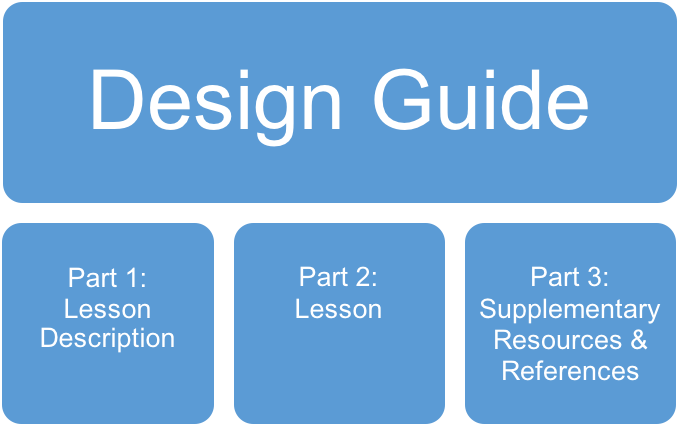Your Lesson’s Focus & Scope
In Module 1, you took a deep dive into the discovery of the learner’s needs, challenges, and opportunities. As you begin to design your lesson, you will put in place a plan to meet those needs, challenges, and opportunities while meeting the project’s design requirements. If you were designing this project for a client, your plan would arise from discussion and negotiation with your client about the project’s design requirements. For this project, we relied on the advice of our panel of subject matter experts who helped us to established a short, but important list of project requirements.
The Project Requirements
Designers will develop open educational resources for adult basic education based on the following project requirements:
- The instructional materials you design and develop will support adult learners who have not completed high school, and are taking adult basic education courses as they prepare for high school equivalency exams (i.e. the GED, HiSET, or TASC tests), or other adult basic education certifications.
- The instruction you design will align with the College and Career Readiness Standards (CCRS) that underlie high school equivalency exams and other adult basic education programs.
- You are able to select the intended grade level and topic of the instruction from the following subject areas:
- English Language Arts and Literacy, including History/Social Studies, Science, and Technical subjects, and
- Mathematics
- The instructional materials you design and develop will:
- conform to the project’s Design Guide,
- be developed within Open Author on OER Commons,
- incorporate guidance for the instructor implementing the lesson,
- include all necessary content presentation, learner practice, and assessment materials for 15-30 minutes of instruction on the standard and topic you have chosen.
- Instructional materials selected for use in the Adult Learning Zone group on OER Commons will be licensed under a Creative Commons copyright license as free open educational resources (OER). To ensure the broadest use of your work, we request that you select a Creative Commons CC BY 4.0 license.
- All instructional materials you develop must be open educational resources that (a) our instructors and learners can retain, reuse, revise, remix, and redistribute without additional login or paywall, and (b) can be linked or embedded within Open Author.
The Project Design Guide
As noted, the instructional materials you design and develop must conform to the Design Guide that was created to assist you in creating a lesson that meets the project requirements and the instructional need. Much like an architect’s blueprint, the project requirements and the Design Guide for this project describes the who, what, where, when, why, and how of the lesson. Since we will be referring to the Design Guide throughout the course, we have added a link to the Design Guide document in the left navigation menu that appears on each page of this course.
Please take a quick look at the components of the project’s Design Guide. We will review the Design Guide in detail within Module 4, but please take a few minutes to open and scroll through the three parts of the Design Guide.
As you can see, the Design Guide addresses the focus and scope of the lesson, and guides you as you answer the following questions:
- Who is the audience for this lesson?
- What topic is being explored?
- What is the grade level of the lesson?
- What materials will be required?
- How will this course be facilitated?
- Do I understand the needs of my learners?

